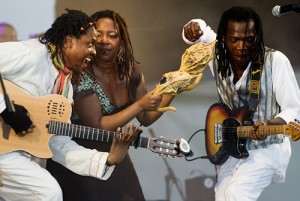Prayer for Rain
Friday, November 5th, 2010 by Thandi MpofuThe rainy season is upon us. Zimbabwe is a country whose prosperity is dependent on this time, so everyone is focused on the rains.
For instance, our esteemed Minister of Agriculture advised farmers recently that in their preparation for planting, they must pay attention to, and use weather information from the Met-Department. While on the face of it the Minister’s advice could be considered as stating the obvious, looking at the questionable productivity of our new-farmers, perhaps counsel is warranted.
In churches too, services and prayers for a good rainy season are being held. Being quite religious myself, I’ve also decided to seek divine intervention for a good season of rain.
Once again, like we have done for many years,
We come before you kneeling, eyes filled with tears,
That in your merciful kindness you please help us out,
Without your intervention we’ll surely suffer more drought.
We implore you to send us seasonable rain,
Rainfall that will mark the passing of this dry period of pain,
A cloudburst which will sweep across our beloved land,
Washing away our withered past into the sand.
As it is now, the fields lie fallow, robbed of their life.
And amongst the people is despair; poverty is rife.
But a chance to start anew will your welcome showers bring,
A change much needed, giving greenness and hope to everything.
So with the rainy season upon us, we repeat our request,
And pray that you cleanse Zimbabwe of elements that cause hardship and unrest.
Quench this dry place; bring this era to an end.
Your precipitation is needed; abundant rains please send.










